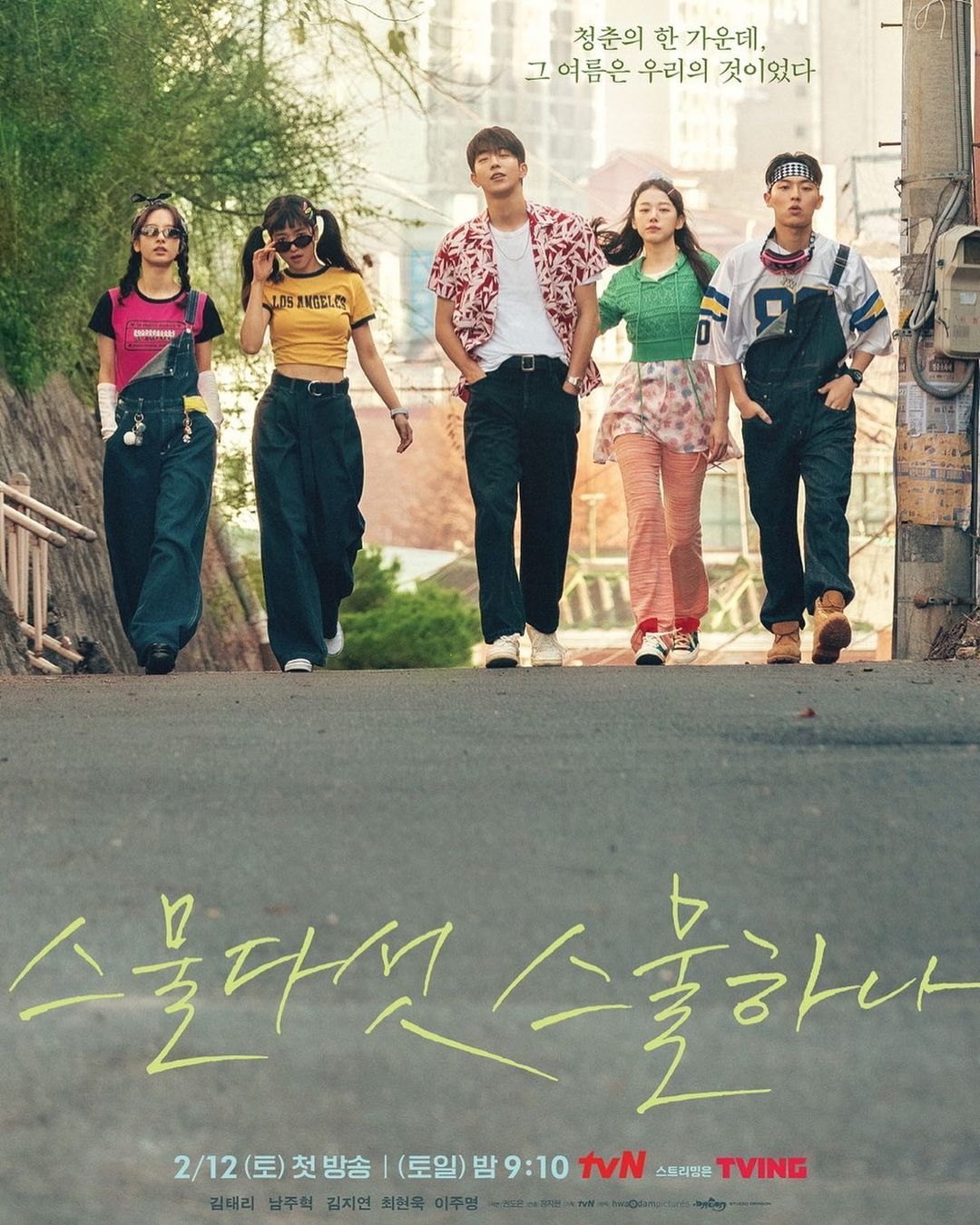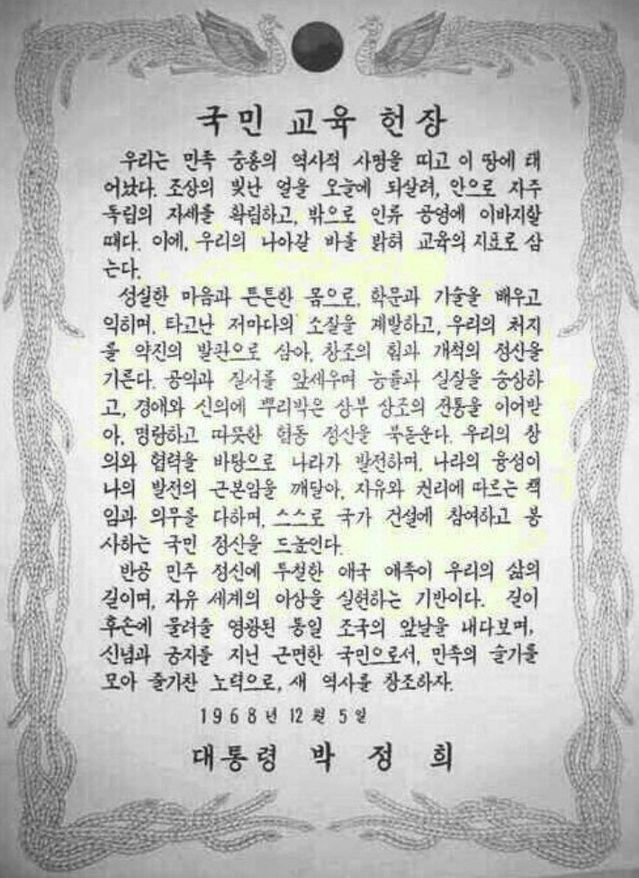
前國際新聞編譯,韓劇、書籍成癮人士。 每週分享讀書心得,偶爾介紹韓國文化。
[Watching Korean dramas and talking about Korea] "Twenty-Five, Twenty-One": Establishment of Social Order vs Destruction of Fairness and Justice, Talking about Korean "Senior and Senior" Culture (Part 1)
Combining elements such as youth, love, sports and historical background, the Korean drama "Twenty-Five, Twenty-One" not only achieved an average rating of over 10% in South Korea, but also won a lot of audiences in Taiwan. Nan Zhu, who plays the heroine Hejin Tae-ri (김태리, 1990~) also won the 58th Baeksang Arts Awards for Best Actress and Female Popularity Award in the TV department of the 58th Baeksang Arts Awards. In addition, the actor Nam Joo Hyuk (남주혁, 1994), who played the leading role, also received a lot of recognition because of the obvious improvement in his acting skills.

As the main axis of the story, in addition to the heroine Rohito, who is a fencer, and Bai Yichen, the male protagonist who was once a part-time job because of his family affairs, and finally became a reporter, the two and three other Rohito's classmates are composed. The "Gang of Five" is also an important puzzle piece to interpret the youth campus plot. Among them, Bai Yichen's "senior" status in particular, while connecting many bridges, may also make many viewers have a lot of interest in South Korea's "senior" culture.
The culture of "Senior and Senior" (선후배), also known as the "Senior and Junior System" in Taiwan, exists in some organizations in Taiwan, but in Korean society, which pays special attention to the order of elders and youngers, it is as common as an iron rule In the workplace, military, clubs and campuses and other organizations. Not only do you need to use respectful suffixes when addressing and talking, but the attitude and reaction of juniors who belong to the lower ranks will become the standard for evaluating whether a person is "polite" and "advanced", and they will be criticized for not responding well. Even incidents of bullying have been heard from time to time. However, what kind of impact does this unspoken rule have on Korean society? Has there been a shift in modern Korea? In this article, I'm going to talk about the culture of "predecessors" in Korea.
Seniors: Existence Beyond the Rules of Age
"Age" is one of the important pieces of information that Koreans must confirm when they meet others, but this is not because they don't know how to respect privacy, but they must decide how to make decisions by knowing who is older and who is younger. Appropriate response to advance and retreat. However, there are exceptions to such an orderly rule, and "senior" is one of them. It means that even if you are young, you can become a senior/senior "as noble as the sky" as long as you enter the school or other groups earlier than the other party.
Whether it is the age-defining interactive relationship, or the culture of predecessors and predecessors on it, many people's first instinct may think that it is the influence of Confucian culture. However, South Korea's SBS-produced series "Why Speak Half a Language" pointed out that the culture of modern ancestors was actually more influenced by the Japanese colonial period. Taking celebrities and scholars in the Joseon Dynasty as an example, Korean education doctor Shin Jingmin (신정민, transliteration) pointed out that people in the past were relatively more tolerant of age, and paid more attention to the level of knowledge than age, so even if the difference was more than At the age of ten, you can make friends and treat each other as equals without any difficulty.
On the contrary, when entering the Japanese colonial period, the practice of introducing the military system into the campus by Japanese educator Yuri Mori through the "Model School Order" also entered the Korean peninsula, which also included strict class distinctions between grades. "The fourth grader is also called 'Mr.' (님), the third grader is called a 'person' (사람), the second grader is called a 'guy' (놈), and the first grader is called a 'hairy boy' (애송이)." Wu Chengzhe (오성철, transliteration), a professor at Seoul National University of Education, explained that in addition to stipulating the class among students, even the monitor system was a militarized system introduced into the school system at that time.

Although South Korea was liberated after World War II, the same management concept was inherited by South Korea's National Education Charter and continued to deepen its influence with the encouragement of an authoritarian government. In addition, during the university years, some male students would "win the lottery" on the way to school and return to school after serving in the military, which also added more military colors to the culture of the predecessors. Just as students will enter the society after graduation, the influence of the culture of the predecessors is no longer limited to the campus, but has become a deep-rooted unspoken rule in Korean society. statement.
So, specifically, what does the predecessor culture represent? What "obligations" do seniors and juniors have?
Shade and obedience to the "up and down" relationship of predecessors
According to the explanation of the Korean related information website "Creatrip", the culture of seniors and seniors simply means "the seniors should take care of the juniors, and the juniors also unconditionally respect the seniors". Among them, "respect" is included in words and actions. Except for the "90-degree bow" that is occasionally seen in Korean dramas to say hello (but not to the teacher), it is matched with the unique distinction between honor and inferiority in Korean, and "honor" is completely indispensable. In addition, in some cases, juniors are like subordinates in military institutions, and must be "ordered".
When the scene is changed to the wine table, the younger generation has to know more about the "eyebrow corners". In addition to having to sit in the most convenient position for running errands from the very beginning and be responsible for serving dishes such as tableware and barbecue, some people also think that it is polite for juniors to take the initiative to toast first. If it is a little bit feathery, even the height of the mouth of the cup when clinking glasses (the younger generation should be lower) and the direction they face when drinking (the younger generation must turn to the side) are the key points that must be paid attention to.
Despite being in a high position, it also takes hard work to become a respectable senior. In addition to the inheritance of experience, the seniors should also be responsible for the follow-up responsibilities while commanding the juniors, and taking care of the juniors is essential. Like sometimes in Korean dramas, seniors help juniors to stop drinking, or treat guests to dinner, which can be said to be unspoken rules in the culture of seniors; as for the nepotism of seniors in the workplace, it is an important interpersonal relationship for many people to go through the back door resource.
The original meaning is that the culture of predecessors and predecessors can be regarded as a relationship of "giving and receiving", and hopes to establish group order, but on the other hand, if such a "consensus" is not followed, it will be considered "rude", "Not on the Tao" creates huge social pressure. In addition, the structure of unequal power also makes the culture of the predecessors the best accomplice of bullying, which leads to serious social issues.
Like my work?
Don't forget to support or like, so I know you are with me..
Comment…